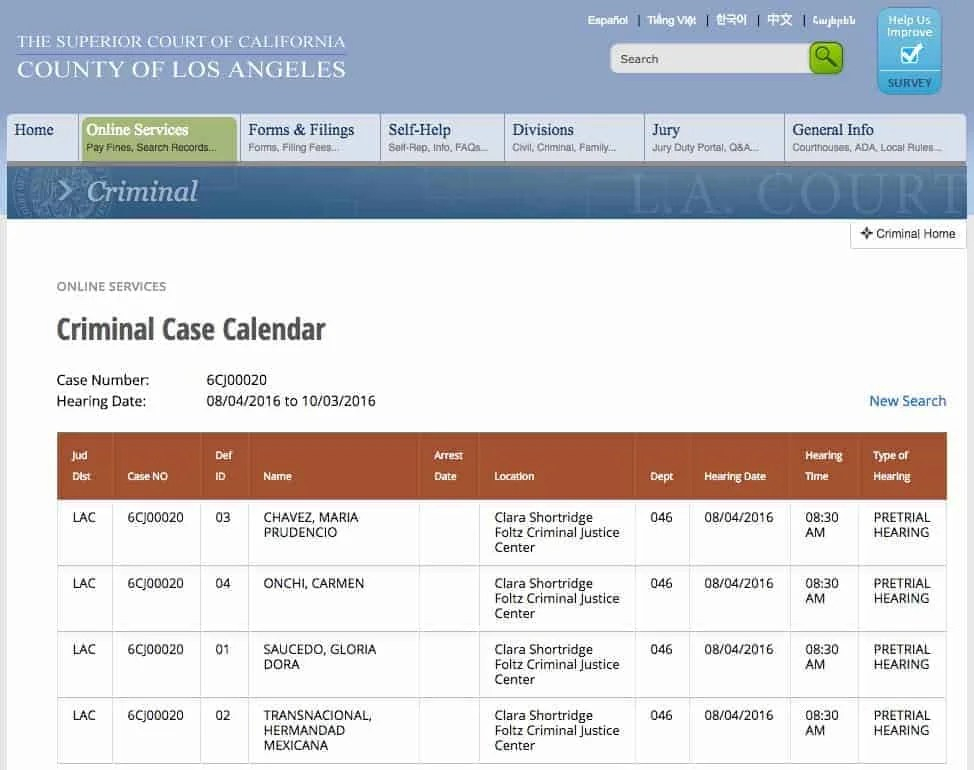Brattleboro Vermont Criminal Court Calendar – When you or somebody you recognize is involved in a criminal case, recognizing the criminal court calendar is necessary. It’s like a roadmap, laying out the essential action in the legal process and helping every person involved recognize when to be in court. Whether you’re a defendant, a attorney, or just interested concerning how the system functions, this overview will certainly break it all down in basic, easy-to-understand terms. Brattleboro Vermont Criminal Court Calendar.
What Is a Criminal Court Calendar?
Allow’s start with the essentials. A criminal court calendar is essentially a routine that notes all the criminal cases readied to be listened to in a specific court. Think about it like a huge schedule or schedule, where every situation has its own port. Each hearing or trial has a particular day, time, and area.
But that manages this schedule? Generally, it’s the duty of the court’s clerk to maintain and update it. They ensure that situations move along smoothly with the system. The schedule consists of everything from minor offenses to serious felonies, so every instance obtains the focus it deserves.
Key Elements of a Lawbreaker Court Schedule
Now that you recognize what it is, allow’s dive into what you’ll locate on a criminal court calendar.
- Kinds of Instances: You’ll see a variety of criminal fees, from minor burglary to more severe offenses like attack or burglary. Misdemeanor situations often tend to be much shorter, while felonies commonly call for multiple court looks.
- Important Days: Each situation has essential turning points, such as accusation (the first court appearance), pre-trial hearings, and ultimately the test or appeal bargain. Understanding these dates helps every person involved prepare for what’s coming.
Comprehending these components helps accuseds, lawyers, and also member of the family remain informed and prepared.
How Are Court Dates Figured Out?
Wondering exactly how the court chooses when to schedule your hearing? It’s not arbitrary. The process of setting court dates relies on several aspects, consisting of the seriousness of the offense, court availability, and the schedules of the district attorney, defense lawyer, and court.
For instance, an accusation (where the offender is officially billed) is usually set up within a few days to a few weeks after the arrest. Pre-trial hearings and the real trial day might take longer to organize, as every person requires to coordinate their calendars.
A judge usually plays a significant function in figuring out when the test will occur, typically after discussing schedule with both the defense and prosecution.
Sorts Of Criminal Court Hearings
Not all court hearings coincide, and the criminal court calendar is full of various sorts of sessions. Here are the most common ones you’ll stumble upon:
Arraignment Hearings
This is the defendant’s first appearance in court. At the accusation, they will certainly be officially charged, and they will certainly either beg guilty, innocent, or no competition. A future court day will likewise be arranged throughout this hearing.
Pre-Trial Meetings
Prior to a instance mosts likely to test, there are usually pre-trial conferences. These are conferences in between the lawyers and the court to go over the instance’s progression and any type of possible appeal offers.
Movement Hearings
Lawyers often submit motions ( ask for a judge to make a decision) throughout a instance. Movement hearings are where those requests are gone over. For instance, a defense attorney could submit a activity to subdue particular evidence.
Trials and Sentencing
If a instance goes to trial, it will certainly be scheduled on the court calendar, usually as the final step. After the test, if the accused is condemned, a sentencing hearing is scheduled to establish their punishment.
What Occurs If You Miss a Court Day?
Missing out on a court day can be a big deal, and it’s not something to take lightly. The effects can be severe, including:
- Bench Warrant: The court might release a bench warrant for your apprehension.
- Penalties and Fines: Failing to appear can result in extra penalties or penalties.
- Effect on Your Instance: Missing out on a day might make you look unstable in the eyes of the court, which can impact your situation’s result.
If you realize you can’t make it to your set up hearing, call your attorney promptly. They might be able to ask for a new day or reschedule it for you.
How to Access a Bad Guy Court Calendar
In today’s electronic age, accessing the court calendar has actually never ever been easier. You can:
- Online Resources: Numerous courts have on the internet sites where you can search for your situation and see the arranged dates.
- Courthouse Check outs: You can constantly see the courthouse personally and consult the clerk’s office.
- Legal Advise: Your lawyer needs to have all your court days and will certainly keep you notified as your instance progresses.
Why the Crook Court Calendar Is Necessary for Defendants
For a offender, remaining on top of the criminal court calendar is vital. Missing even one key date can hinder your situation and result in even more trouble than you planned on. Plus, recognizing when your following hearing is allows you to prepare far better– whether that means event evidence, speaking to witnesses, or planning with your lawyer.
Think about the court calendar as your individual timeline. It assists you understand the process and stay ahead of what’s following.
Tips for Browsing the Lawbreaker Court Calendar
Below are some quick suggestions to help you browse the system:
- Keep Organized: Keep a physical or electronic copy of all your court days. You do not want anything sliding through the cracks.
- Work Very Closely with Your Lawyer: Your legal representative is your finest resource for understanding the court schedule and guaranteeing you never ever miss out on an essential day.
- Establish Pointers: Utilize your phone or other tools to set reminders for each and every court appearance. This will maintain you on track and prompt.
Final thought
The criminal court schedule may appear overwhelming initially, yet understanding it is critical. It serves as the backbone of the legal process, assisting each instance throughout. By remaining organized, working with your attorney, and keeping an eye on important dates, you can navigate the system with self-confidence.
Frequently asked questions
- Just how can I check my court day?
- You can examine your court day by seeing the court’s website, making use of an on-line portal, or speaking to the staff’s workplace straight.
- What occurs if my court day is delayed?
- If your court day is postponed, the court will notify you or your lawyer. Ensure you upgrade your schedule to mirror the new date.
- Can I change my court date?
- In some cases, yes. You’ll need to request a rescheduling through your attorney or directly to the court, however it’s up to the judge to approve it.
- What does “calendar call” suggest in criminal court?
- A calendar telephone call is when the court evaluates all the instances set up for a specific date to make certain everything is ready to continue as planned.
- Exactly how do I recognize if I’m required to attend a specific hearing?
- Your lawyer will educate you which hearings are compulsory for your presence. The majority of pre-trial hearings might not need your existence, however tests and accusations normally do.


